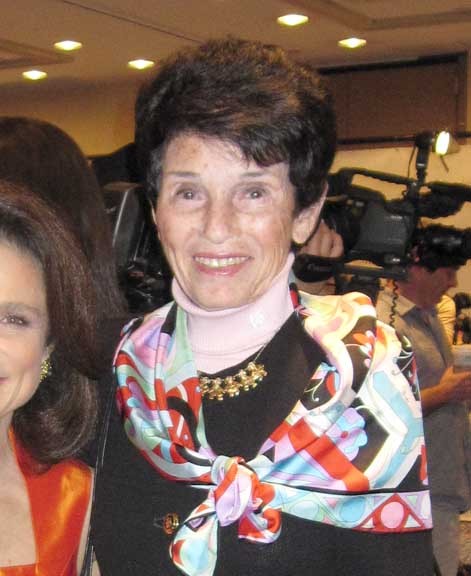“Family Matters” asks a loaded question
In golf it’s said the toughest hole to play is the space between your ears. That truth was illustrated with unfortunate results for a handful of the finest professional golfers in the world in last weekend’s final round of the U.S. Golf Open.
If you’ve ever played competitive golf you know that after a particularly bad hole one’s mind may open a Pandora’s box of negative thought aimed directly at your next shots. If self-doubt and insecurity then get a grip on your gray matter, it’s like trying to shake off a swarm of bees. And sometimes the buzz won’t quit.
It wasn’t pretty to watch young leader Justin Johnson, unflappable through three stellar rounds, lose his cool. Or see veteran icons Tiger Woods and Phil Mickelson find themselves in places on the gorgeous, wind swept Pebble Beach golf course that resembled a forest primeval or a moon crater.
As a theater critic, I regularly encounter scenarios where lives are affected by the machinations of the mind. Most often these are caused by verbal blows dealt by members of one's own family or a loved one. While a pro golfer will likely recover from the occasional blow to his self- esteem or pride, assaults on the psyche, in drama from any era, tend to form hardened little knots of painful memories that hang on for decades — or forever.
The above philosophizing was brought on directly by my notes for the World Premiere of Michele Willens’ “Family Dinner,” which I saw at a matinee the day before the U.S. Golf Open final. In Ms. Willens’ cleverly framed play, we first encounter the Wells family in suburban Southern California in 1963. Father Howard Wells (William Broderick), a wartime survivor, has strived to fulfill the American Dream for his family, but is a controlling, demanding alcoholic, consumed by the pressures of his work and haunted by the terrors of his past. His wife, Jane (excellent Nancy Nagrant), starched from head to toe, is a picture-book 1963 home-maker: impeccably groomed and organized, whose life’s focus is her children, husband and a lingering thrift from the days when money was scarce. When the family gathers for dinner each night, it’s likely a casserole, and conversation controlled by a dad intent on improving his children’s minds, while correcting them between mouthfuls and visibly stifling their emotional growth. Well, correcting two of them: Eldest son Alex, a fine student, likes Bob Dylan’s take on the times, but his father won’t allow him to play his hero’s music. Nubile sister Maggie, in the bloom of adolescence, is treated like a little girl — to be seen but not heard. Middle child Johnny, all self-involved ego, is a naturally gifted athlete, but a slack student who hides his failing grades from his father: He can do no wrong in dad’s eyes. When the scene shifts to Maggie’s teacher’s office, as she’s being invited to be his “assistant” after class, it’s obvious no good can come of this trouble-fraught liaison. And, at the end of Act One, no good comes.
Times, they have ‘a changed
Act Two takes place in New York City in 2002, in the sleek modern apartment of Maggie Wells Barron. Post 9-11, mores have indeed changed, but the scars from the three youths’ dysfunctional childhood still sit heavy on their adult lives. One soon realizes that an Act One that seemed like a stylized sit-com, albeit mostly lacking the usual comic zingers (unless you count Mom’s dinner admonition, “Remember there are children starving in China”), was actually a clever planted hark-back. It allowed the same characters to now play new roles: A grown, married, liberated Maggie, mother of three, her two middle-age brothers, her three children. Their father Howard had morphed into his son, a conniving, oft-married war veteran draining the coffers of his sister and now aged (but also most “liberated” mom) with his get-rich quick schemes. Uncle Alex has become a never-married teacher haunted by feelings of worthlessness lingering from his late father’s condemnation of his humanitarian, anti-war sentiments. And, grand stroke of irony, the teacher who did Maggie wrong is now playing her enlightened husband, who knew the secrets of her past, but only desired to heal them.
Hoping you’ll sit in on this “Family Dinner,” I can only advise that Act Two more than justifies the stiltedness of the opener, allowing us to reflect anew that times change but family members will always carry some part (if not all) of their upbringing with them. And each generation can’t escape bringing that past to bear on how we deal with the present. In 2002, the truths that emerge from this now openly confrontational family meeting would surely have father, figuratively, searching for his Scotch in his grave.
There’s a positive sweetness in this new, open family unit heading to the dinner table, as they hadn’t in decades, which has lingered with me. (As well as a few burning memories from family dinners of my own youth.) Spot-on direction by Jamibeth Margolis. And fine ensemble acting save for the misguided choice of a now blowsy, blonde Grandma with accent to match, meant to be mother Jane, transformed into the truth-sayer so squelched in her married years. In a subtitle to “Family Dinner,” Ms. Willens notes “Times change . But can we?” Have you? Can you?! (Beckett Theatre, 410 W. 42nd St.,212-279-4200)






